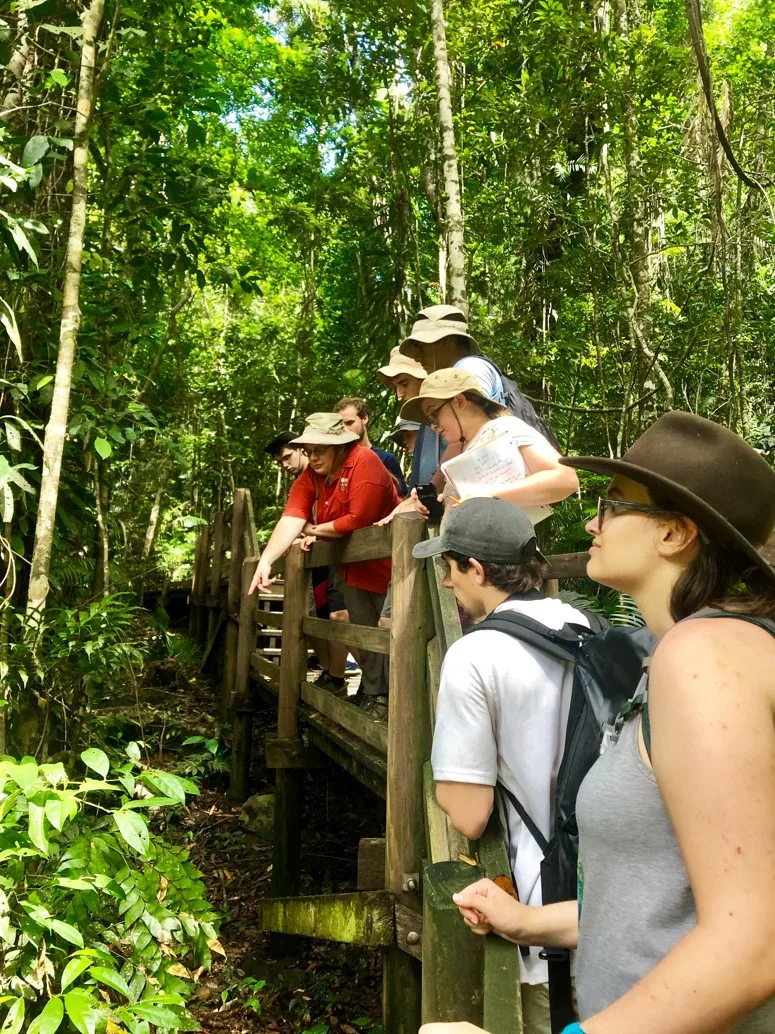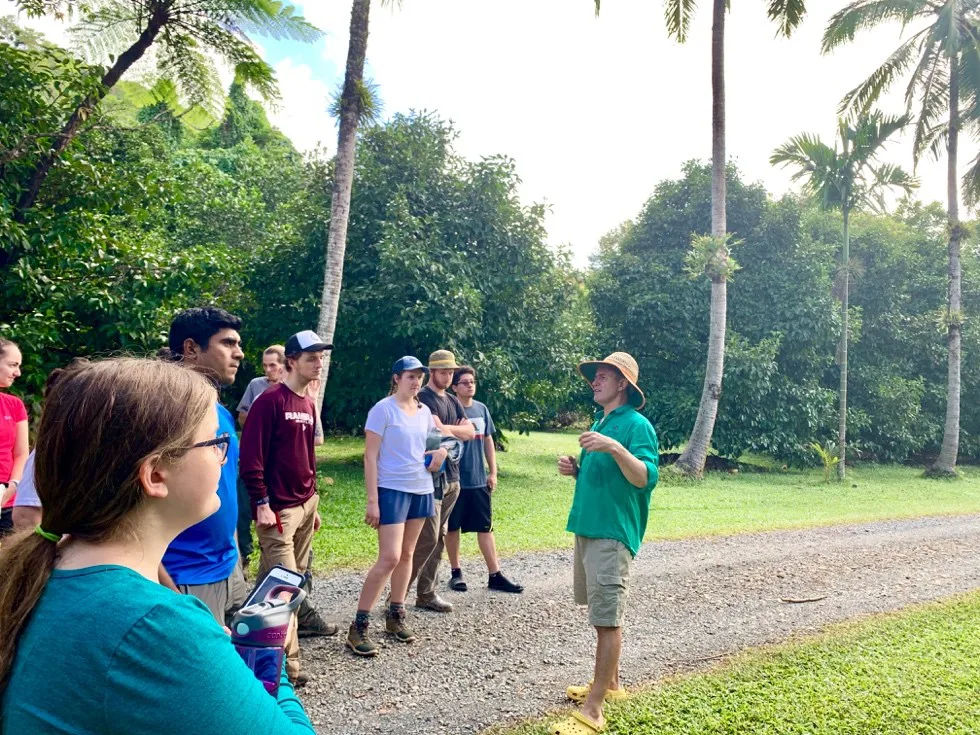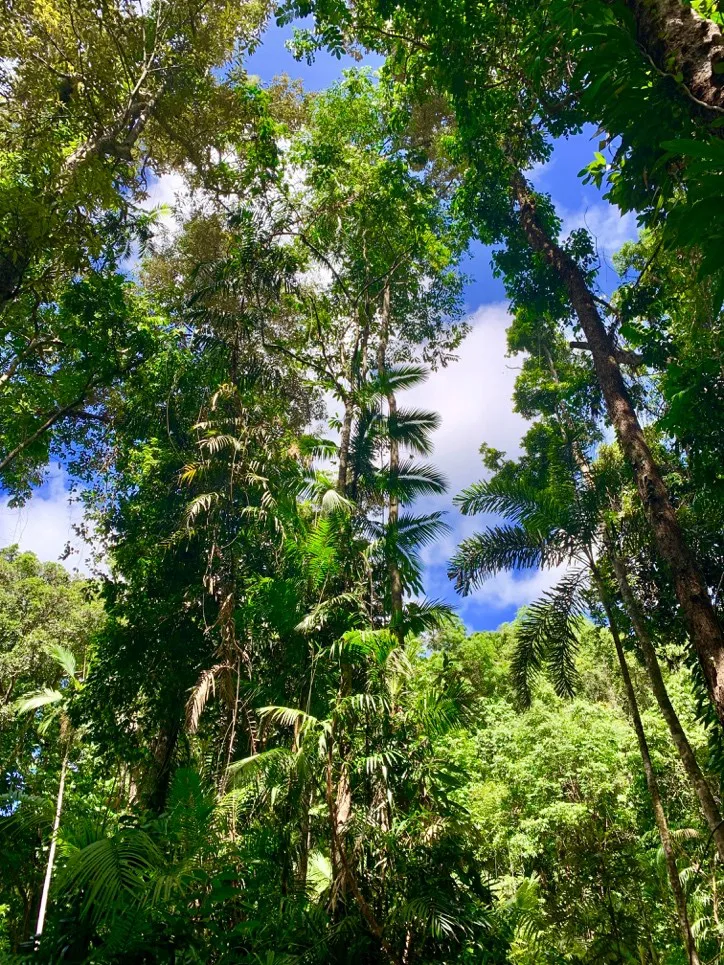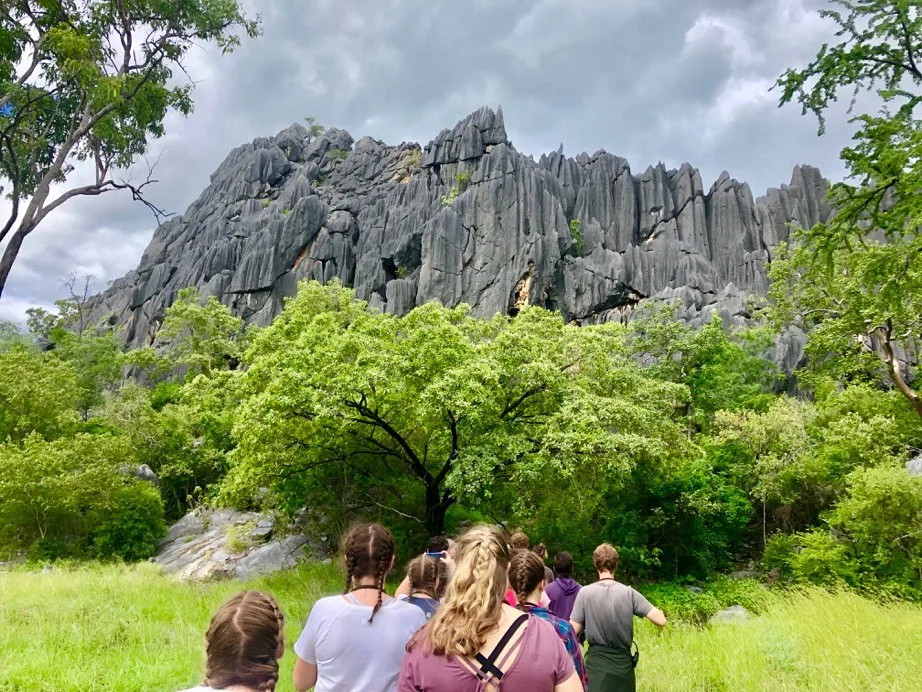Learning and Connecting beyond the Lecture
Last summer, I wrote about how our students had an opportunity to participate in one of a kind indigenous conference dubbed ‘Thinking beyond borders’. I explained how students had the rare opportunity to connect beyond the classroom, to receive firsthand information from indigenous Australians about their 60,000 years relationship with the land. This form of experiential learning defines the teaching approach at SFS, and I dare say that it resonates very well with our students.
This semester, we have a group of 21 enthusiastic students. Their desire to learn through doing is apparent from their perceptiveness of the field based lectures and community interactions. Well, perhaps you might think that I say the same thing about every student group that comes to us. This may be true, but it does not negate the fact that each student group brings a unique dimension into the program. What I have noticed with the current group of students is that they are looking for something extra than what the traditional teaching model can offer. They want to get down and dirty as they learn from real world experiences. It is a trend that has been observed among the post-apocalyptic generation or what in common parlance is referred to as Generation Z. More about Gen Z another day!


For the last two weeks, students have visited a local coffee farm, and went on an extended excursion to the Daintree and Chillagoe. The coffee farm makes for an interesting case study, not only on sustainable farming practices, but also on value addition. However, what I relish most about this visit is listening to students’ feedback afterwards. Suffice it to say that even with limited exposure to farming for the vast majority of our students, they are extremely discerning about what sustainable practices should entail. I tend to use this debrief to further introduce the ‘slippery’ concept of sustainable development.
A visit to the Daintree, arguable the oldest lowland rainforest in the world, wows both the students and repeat visitors like yours truly. I cannot do justice in explaining the Daintree and its academic value to our students in this short blog, but it is definitely one of the highlights of our program at the Center for Rainforest Studies (CRS).

The outback experience in the sun-baked Chillagoe helps students to appreciate the amazing interconnectivity between landscapes, indigenous cultural heritage and the impact of past economic activities on fragile ecosystems.
With this kind of embedded learning, it is no wonder that the most common statement from our students at the end of the semester is: ‘At SFS, I learnt in 3 months what would have taken me a whole year to learn if I were back at my home institution’’ – well, I believe them!

Related Posts

Camila Rojas: Alumni Spotlight⭐

